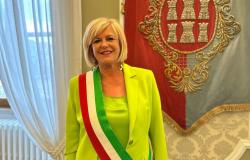It is well known that the Austrian capital has a soft spot for Riccardo Muti and that the Wiener Philharmoniker have the deepest affection and esteem for him – for over fifty years they have reserved the podium for him on the most important occasions. An esteem that from the great Italian master also reverberates to his “creature”, the Luigi Cherubini Youth Orchestra, which in Vienna a few days ago, on 12 June, celebrated the first twenty years of its foundation with a concert at the very prestigious Hall of the Musikverein by performing in a program chosen to enhance not only the talent of young Italian musicians, but also an Italian style and repertoire that is too often overlooked.
The Cherubini, which in these twenty years has welcomed almost a thousand musicians into its ranks, in Muti’s (fully realized) intention is a precious training opportunity beyond the academic path, capable of giving young people awareness and pride in an important “profession”. After all, many of those thousand took off to join important orchestras in Italy and Europe – among many Paolo Taballione, first flute at the Bayerische Staatsoper and now also teacher at the Mozarteum in Salzburg.
The results also surprised the demanding Viennese public as well as the most acute critics of the Austrian press who, in addition to confirming that “Riccardo Muti is certainly one of the most important conductors of our time”, placed the emphasis precisely on his orchestra which ” was able to impressively demonstrate his high standards.” The Italian thread followed by Riccardo Muti in the choice of pieces was immersed, like Cherubini herself, in the broader and more fruitful European panorama: here is the opening entrusted to the Overture in C major “in Italian style” D 591 by a Schubert fascinated by symphonic pages by Rossini which were very popular in Vienna at the time. But it was the less frequented Italian pages that won over the Viennese public: Contemplazione, Alfredo Catalani’s “jewel”, for “orchestral bel canto” – where Cherubini’s wind instruments truly gave their best; then the timbric enamel and expressive vigor achieved in the songs from the “Turandot” suite by Ferruccio Busoni. And extraordinary praise also went to the interpretation of Mozart’s Clarinet Concerto K 622, with the solo part entrusted to none other than the first Wiener clarinet, Daniel Ottensamer. An extraordinary success, therefore, which was repeated last night, in the Basilica of the Patriarchs of Aquileia – with a small variation to the program which after the opening reserved for Schubert closed as if circularly returning to the same author with his “Incompiuta” symphony. But, as Riccardo Muti never tires of repeating, Schubert like Mozart and all of musical Europe owe a lot to our country. Moreover, let’s not forget that Beethoven deeply admired Luigi Cherubini: it is no coincidence that Muti wanted to name the young orchestra after him. Which already in the next few days will return to perform again directed by its founder: to celebrate the centenary of Giacomo Puccini in Lucca, on 28 June, and in July in the traditional concert of the Viaggio dell’Amicizia di Ravenna festival which will take it to the island of Lampedusa.
Reproduction reserved © Copyright ANSA





